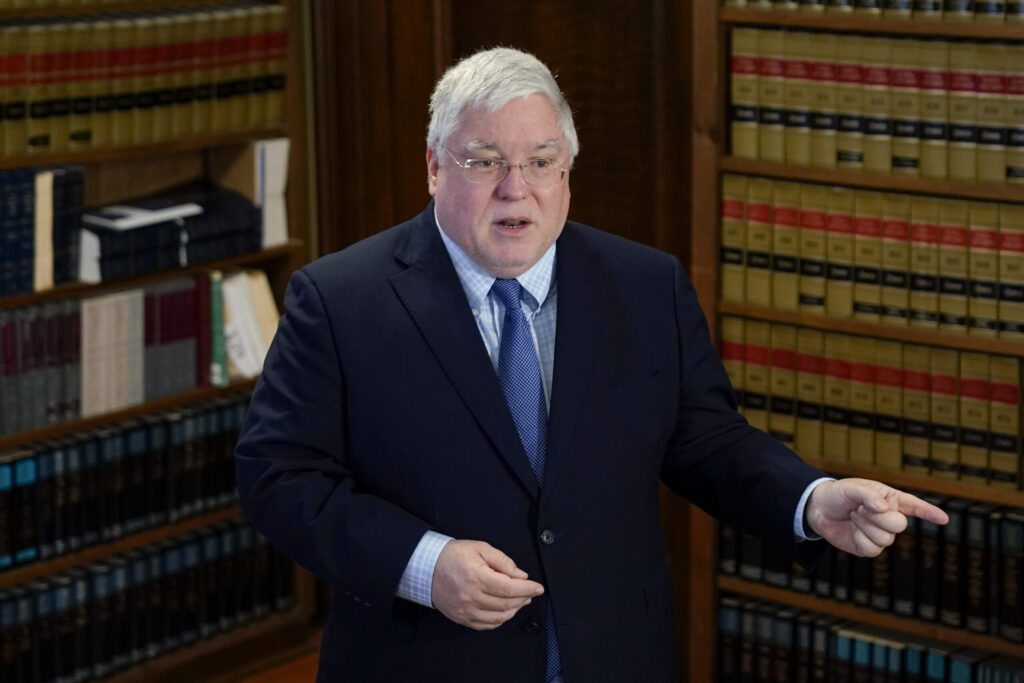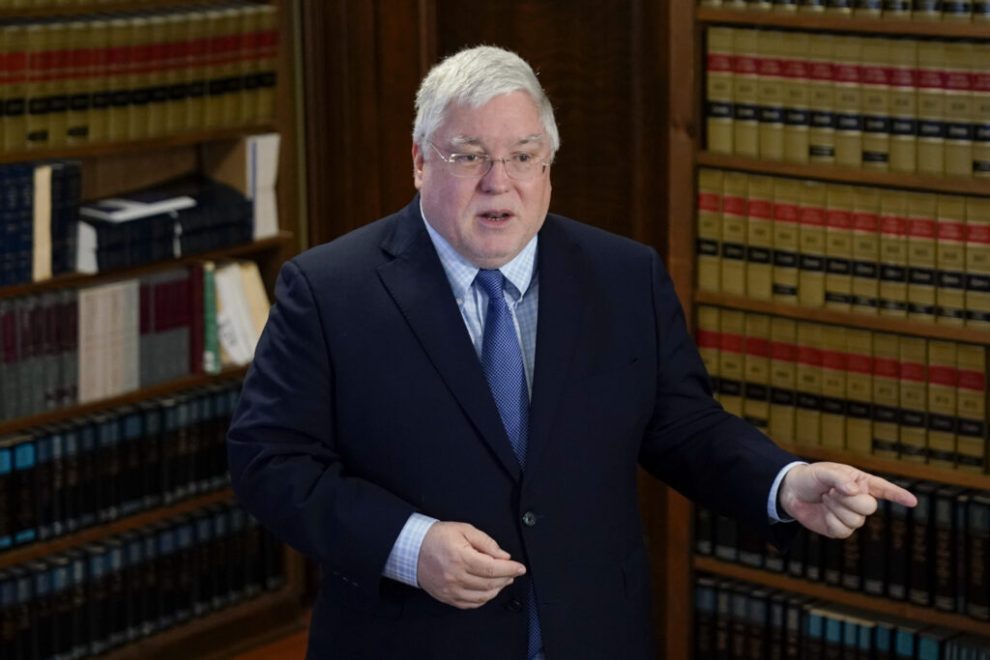West Virginia on Wednesday spearheaded a coalition of 27 Republican-led states urging the Supreme Court to limit the Biden administration’s so-called ghost guns ban, which also classifies certain weapons parts as firearms.
The “Frame or Receiver” rule, established by the Bureau of Alcohol, Tobacco, Firearms and Explosives in 2022, expanded the definition of a “firearm” to include weapon parts kits that can be assembled into functional firearms, as well as partially complete or disassembled frames or receivers. The nine justices will hear arguments in Garland v. VanDerStok on Oct. 8, one of the first cases they will hear when their new term begins this fall.

West Virginia Republican Attorney General Patrick Morrisey criticized the administration’s approach, stating, “Here again is an example of how the Biden administration uses bureaucratic agencies, this time the ATF, to act as legislators instead of enforcing the laws Congress passed.”
The coalition’s brief contends that the ATF has overstepped its authority, arguing, “Congress has not outlawed weapons parts kits, stabilizing braces, or bump stocks. Nor has it dubbed every person handling a gun a firearms dealer. ATF can’t take these actions in Congress’s place.”
Last July, Texas-based U.S. District Court Judge Reed O’Connor said that ATF went further than Congress in banning the partially made guns. When the U.S. Court of Appeals for the 5th Circuit declined to put O’Connor’s ruling on hold, the Biden administration asked the Supreme Court to step in.
By a 5-4 vote, the justices last August permitted the Biden administration to allow the rule temporarily while the challenge proceeded in lower courts. Conservative Justices Clarence Thomas, Samuel Alito, Neil Gorsuch, and Brett Kavanaugh said they would have denied the federal government’s request and allowed the rule to remain on hold.
Then, in November, a panel of three judges from the 5th Circuit unanimously ruled against the “Frame or Receiver” rule, stating that the ATF was overstepping its authority by creating laws rather than enforcing existing ones. The court emphasized that the rule “flouts clear statutory text and exceeds the legislatively imposed limits on agency authority in the name of public policy.” After the Justice Department appealed, justices later agreed in April to consider the case for oral arguments in the fall 2024-25 term.
U.S. Solicitor General Elizabeth Prelogar said the result of the 5th Circuit ruling, if allowed to stand, would lead to “a flood of untraceable ghost guns into our nation’s communities, endangering the public and thwarting law-enforcement efforts to solve violent crimes.”
“Anyone could buy a kit online and assemble a fully functional gun in minutes — no background check, records, or serial number required,” Prelogar argued in a court filing, noting it would effectively nullify parts of the 1968 Gun Control Act.
A collection of manufacturers and gun rights supporters is challenging the regulation. The opponents say the Biden administration is attempting to change a 50-year-old legal understanding and put kit manufacturers and dealers out of business.
The coalition of states agreed with the plaintiffs who challenged the law and argued that the answer to this dispute is “not for agencies or courts to make.”
Citing the recent decision that overturned the Chevron deference, which told courts to defer broadly to agency interpretations of statutes when legislation passed by Congress is otherwise ambiguous, the states reminded the high court that the “ATF has a history of ignoring statutory text and APA mandates.”
CLICK HERE TO READ MORE FROM THE WASHINGTON EXAMINER
“The Court should keep that history in mind when providing ATF with course correction here,” the brief added.
States joining West Virginia in this legal challenge include Alabama, Alaska, Arkansas, Florida, Georgia, Idaho, Indiana, Iowa, Kansas, Kentucky, Louisiana, Mississippi, Missouri, Nebraska, New Hampshire, North Dakota, Ohio, Oklahoma, South Carolina, South Dakota, Tennessee, Texas, Utah, Virginia, and Wyoming.
























